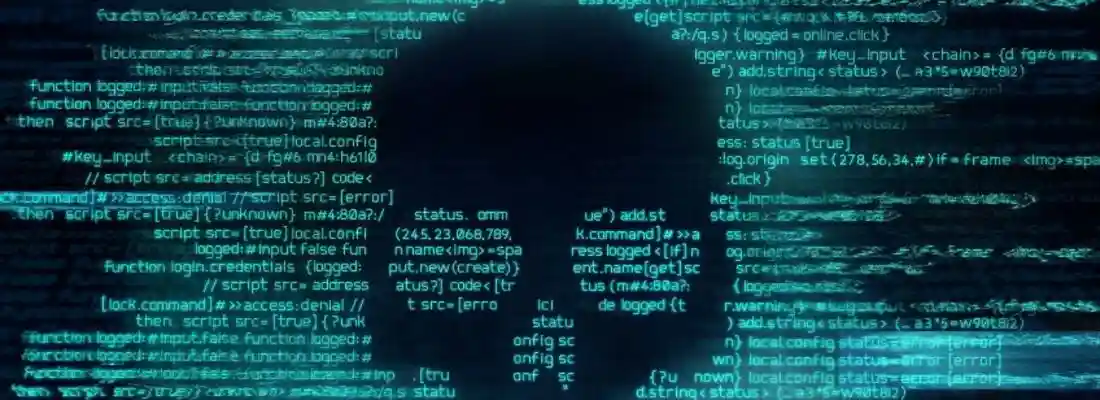5 Ways To Avoid AI-powered Hacking
Date: 8 August 2024
.webp?width=1170&name=147895176_m_normal_none%20(1).webp)
AI technology has been in the making for 70 years. Work with AI started in the 1950s, and thanks to ChatGPT, it entered the public domain in a massive way. And what an entrance it was! Everyone was talking about it.
Sadly, at the same time, hackers were getting their prompt-engineering skills ready to wreak havoc on the entire online world. They polished their scams, invented new ones, and used large-language models (LLMs) to generate new content and even malicious code.
In this article, we take a quick look at how cyber criminals are increasingly using AI to wreak havoc on a global stage. Awareness is power. By understanding the below methods, we can all be more watchful and better identify malicious activity, suspicious emails and implement improved cybersecurity practices at both a personal and business level.
How Cyber Criminals Can Use AI To Attack, Hack & Compromise
In the evolving cybercrime space, hackers are enhancing their skills for data breaching thanks to AI. Here are a few ways that hackers use AI to breach your devices:
- Personalised Phishing: Cyber criminals can use personalised messages and impersonation to make you believe what they’re sending is real. Phishing is the most basic yet the most common way in which not just individuals but also large businesses get compromised.
- Deep Fake Content: Hackers can send deep fake videos. They might even look like they are from your supervisors asking for information and/or money. Deep Fake videos are also commonly being used to spread hate and negative publicity.
- CAPTCHA Cracking: AI algorithms have the power to solve CAPTCHAs just like humans. They can steal sensitive information by hacking into any account that is only CAPTCHA protected.
- Brute Force Attacks: AI can crack passwords and enter into your network or system with bute force. It's easier for cyber criminals to use AI and crack passwords, especially if they have been analysing your digital footprint.
- Keystroke Listening: AI actually has the power to listen to your keystrokes, analyse patterns and guess your password with 95% accuracy.
- Audio Fingerprinting: Cyber criminals can now use AI to duplicate your voice and use it against your family and friends to steal money.
How to Protect Against AI-Powered Attacks?
With malicious threat actors actively using AI, it’s essential to know how to protect yourself and stay one step ahead at all times. Companies can discover their weak points and build better protection against new and recurring cyber threats with the help of AI security threat consulting. Here are the five things you need to do to minimise your chances of getting hacked:
1. Turn On Multi-Factor Authentication
Multi-Factor Authentication (MFA) is an added layer of security that is non-negotiable in the age of AI. You have to provide two (sometimes even more) different forms of identification to log in to an account, especially if it’s a financial services platform. You can use an authenticator app, one-time passwords (OTP), and a biometric scan to ensure better security. With all those precautions, it becomes highly unlikely that a cyber criminal will be able to gain easy access to your accounts and money, even if they happen to breach your password.
2. Use Super Strong Passwords
Strong passwords were necessary before ChatGPT, but now you need super strong passwords. It doesn’t matter if you’re an organisation or an individual. You need to make passwords with more than 15 characters and include symbols, letters, and numbers. Never use the same password for different accounts, and use a password manager if you can’t remember them all. Don’t save passwords in your browser for convenience.
3. Update Everything
Every device you use or connect to your network needs to be updated to the latest version, from apps you have installed to the operating system. To make this easier, enable auto-updates on everything. That way, you won’t have to remember anything, and security patches will always be updated. This simple tip will help you fill the gaps and vulnerabilities that hackers can exploit to access your devices.
4. Secure Your Network
A decade ago, every computer had an antivirus installed. Today, every device also needs a virtual private network (VPN). The VPN masks your IP address when you browse the net and encrypts your data, which is a necessity for private browsing.
Organisations should consider getting a dedicated IP VPN. That way, the IP address will not be shared with other users, and the company will avoid blocklists and CAPTCHAs and get secure access to commercial servers.
5. Use Your Mobile Device Securely
Most people might say they don’t use their phones too much, but their screen time may tell another story. Everyone’s addicted to social media, mobile games, and doom scrolling. Hackers know about that, and they set up traps.
They create fake hotspots with free WiFi, and they look for victims. Disable your auto-connect setting for WiFi and use a VPN. Enable the option to remotely wipe your entire phone if it gets stolen, and don’t store personal data on it. By definition, mobile devices are less safe than laptops and desktops, and you need to adhere to the best cybersecurity tips when using them.
In conclusion, protecting yourself from AI-powered hacking requires vigilance and proactive measures. By implementing multi-factor authentication, using strong and unique passwords, keeping all your devices and software up-to-date, securing your network with a VPN, and practising safe mobile device usage, you can significantly reduce your risk of falling victim to cyber criminals.
Remember, the key to staying safe in this digital age is to stay informed and always be one step ahead of potential threats. Safeguarding your personal and financial information is not just a necessity—it's a responsibility. Stay vigilant, stay updated, and stay secure.


.webp)
.webp)


